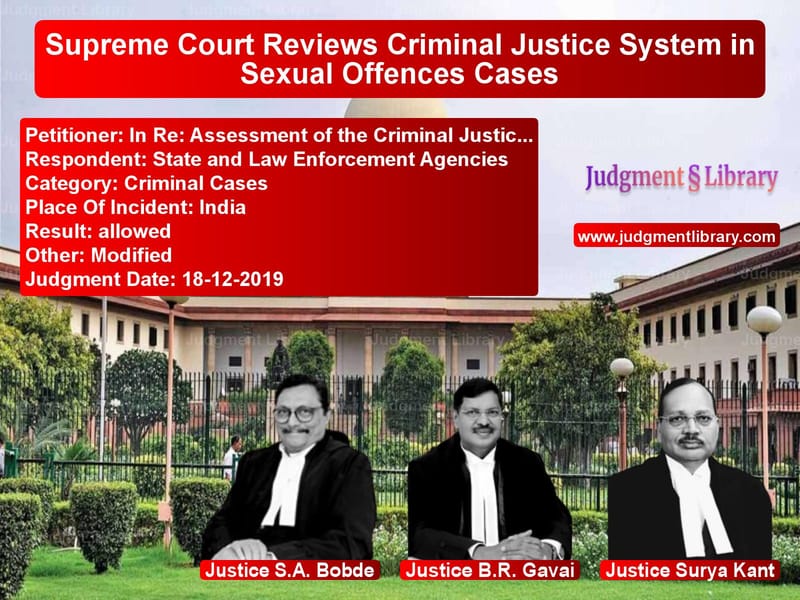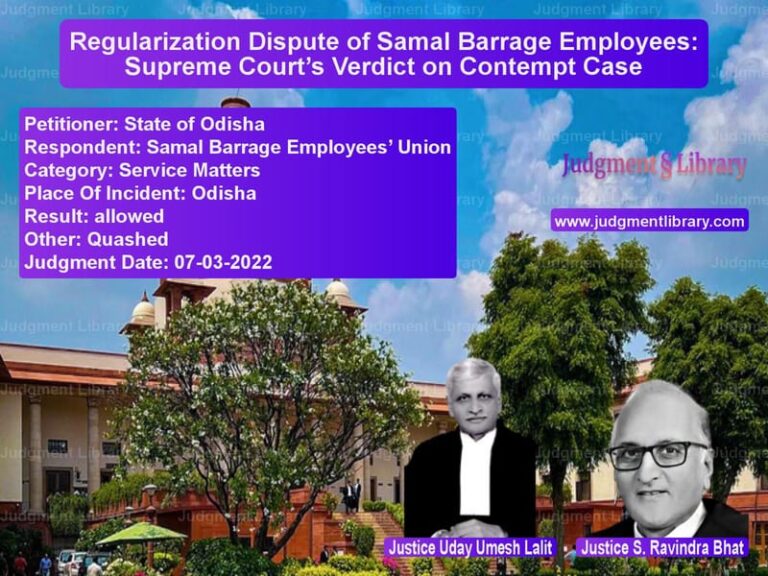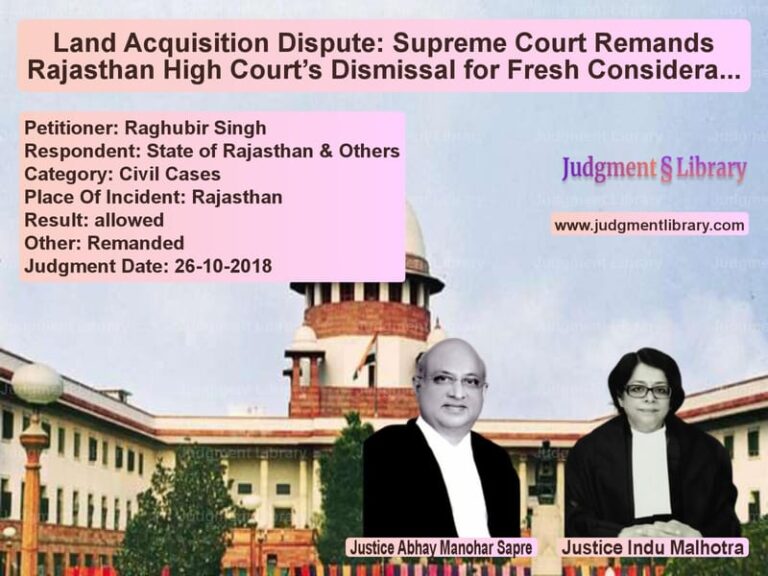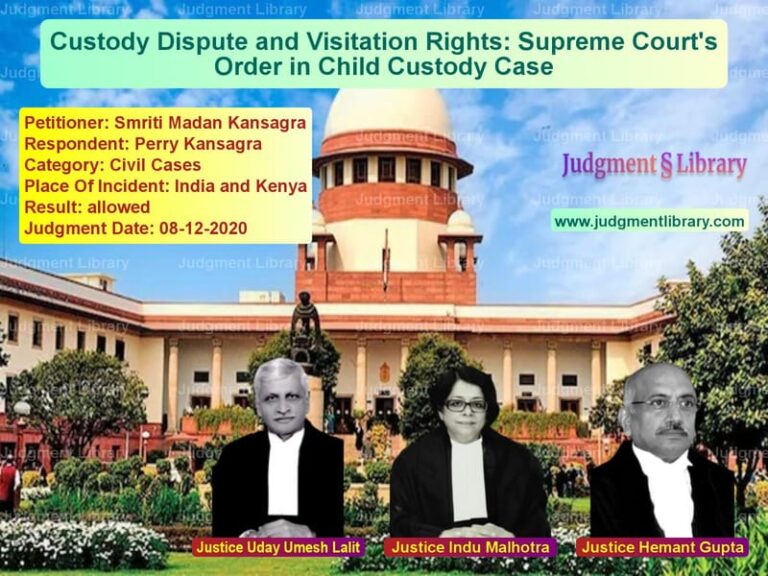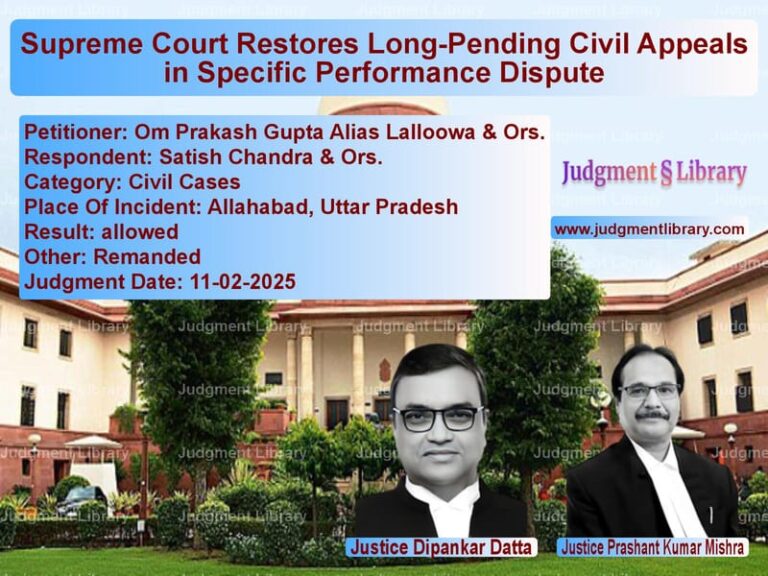Supreme Court Reviews Criminal Justice System in Sexual Offences Cases
The Supreme Court, in its suo motu writ petition Assessment of the Criminal Justice System in Response to Sexual Offences, undertook a detailed review of the implementation of laws related to sexual offences in India. The Court aimed to assess whether the legal system had effectively responded to such crimes, particularly in the wake of the Nirbhaya case and subsequent amendments to the law.
Background of the Case
The suo motu proceedings stemmed from concerns regarding the rising number of sexual offences despite stringent legal provisions. The Court noted that as per the National Crime Records Bureau (NCRB) report of 2017, India recorded 32,559 cases of rape. The delay in the prosecution and trial of such offences had led to widespread public outrage, particularly in high-profile cases.
The Court observed that despite amendments in 2013 and 2018 to criminal laws, including the Criminal Procedure Code (CrPC) and the Indian Penal Code (IPC), the expected outcomes had not been fully realized.
Legal Issues Examined by the Supreme Court
- Whether police stations across the country had adequate infrastructure and personnel to handle cases of sexual offences.
- Whether law enforcement agencies followed proper procedures in registering and investigating such offences.
- Whether forensic, medical, and judicial mechanisms were effectively responding to the needs of survivors.
- Whether witness protection measures were in place.
- Whether trials were completed within the stipulated period of two months.
Key Observations by the Supreme Court
The Supreme Court analyzed various stages of handling sexual offence cases and sought reports from government agencies on the following:
1. Registration of FIRs and Investigation
- The Court noted that Section 154 of CrPC mandated immediate registration of FIRs in rape cases.
- The first proviso to Section 154(1) required that FIRs for rape cases be recorded by a woman police officer.
- There were concerns about compliance with the requirement of recording the FIR at the residence of the victim in case of disability.
- The Court sought information on whether police stations had designated officers to handle such cases.
2. Role of Medical Institutions
- As per Section 357C of CrPC, all hospitals (both public and private) were required to provide free medical treatment to rape survivors.
- The Court sought information on whether hospitals were complying with this mandate.
- It emphasized that medical opinions must not contain prejudicial statements regarding a survivor’s character, in line with Section 53A of the Indian Evidence Act.
3. Forensic Evidence and Investigation
- The Court stressed the importance of forensic evidence, including DNA sampling.
- It examined whether forensic laboratories were adequately staffed and equipped.
- The Court sought information on whether forensic reports were completed within the prescribed time frame.
4. Trial and Judicial Proceedings
- The Court reaffirmed that trials in rape cases must be completed within two months as per Section 309 of CrPC.
- It examined whether adequate infrastructure existed to ensure in-camera trials and protection for survivors.
- The Court questioned whether there were enough women judges to preside over such cases.
5. Witness Protection and Victim Assistance
- The Court noted that witnesses and survivors often faced threats, and it inquired about the implementation of witness protection schemes.
- It called for reports on whether states had special facilities for survivors, including waiting areas in courts.
6. Compensation and Rehabilitation
- The Court examined whether survivors received compensation under Section 357A of CrPC.
- It sought reports on whether the Nirbhaya Fund, established for survivor support, was being effectively utilized.
- It inquired whether state legal services authorities were actively recommending compensation for survivors.
Final Directions of the Supreme Court
The Supreme Court directed that:
- All states must submit reports on compliance with statutory provisions for the registration, investigation, and prosecution of rape cases.
- Medical institutions must strictly adhere to guidelines prohibiting the “two-finger test” and ensure evidence collection follows standardized procedures.
- Forensic laboratories must be modernized and adequately staffed.
- Trials must be expedited, and all courts dealing with rape cases must ensure in-camera proceedings.
- Compensation schemes for survivors must be effectively implemented.
Implications of the Judgment
This judgment serves as a landmark review of the criminal justice system’s response to sexual offences. By seeking comprehensive reports from various agencies, the Supreme Court has ensured a holistic approach to addressing gaps in the system. The ruling reinforces the necessity for a survivor-centric approach to handling sexual offences and underscores the need for accountability among law enforcement, medical, and judicial institutions.
Petitioner Name: In Re: Assessment of the Criminal Justice System in Response to Sexual Offences.Respondent Name: State and Law Enforcement Agencies.Judgment By: Justice S.A. Bobde, Justice B.R. Gavai, Justice Surya Kant.Place Of Incident: India.Judgment Date: 18-12-2019.
Don’t miss out on the full details! Download the complete judgment in PDF format below and gain valuable insights instantly!
Download Judgment: In Re Assessment of vs State and Law Enforc Supreme Court of India Judgment Dated 18-12-2019.pdf
Direct Downlaod Judgment: Direct downlaod this Judgment
See all petitions in Rape Cases
See all petitions in Bail and Anticipatory Bail
See all petitions in Custodial Deaths and Police Misconduct
See all petitions in Judgment by S. A. Bobde
See all petitions in Judgment by B R Gavai
See all petitions in Judgment by Surya Kant
See all petitions in allowed
See all petitions in Modified
See all petitions in supreme court of India judgments December 2019
See all petitions in 2019 judgments
See all posts in Criminal Cases Category
See all allowed petitions in Criminal Cases Category
See all Dismissed petitions in Criminal Cases Category
See all partially allowed petitions in Criminal Cases Category

